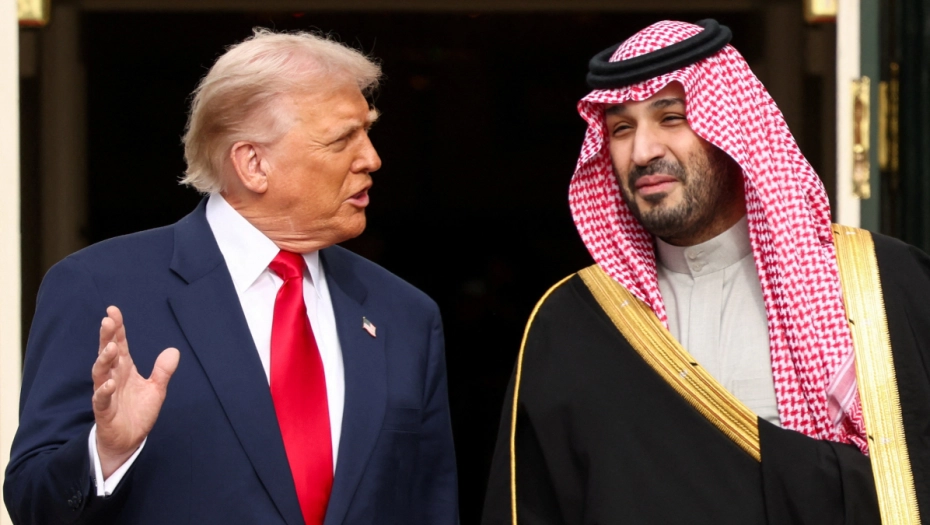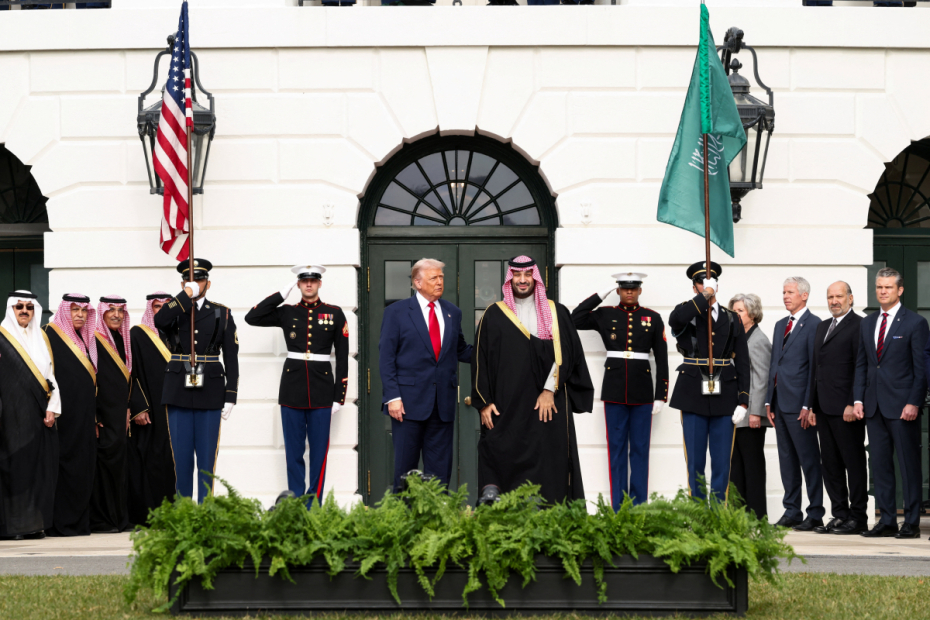The visit of Saudi Crown Prince Mohammed bin Salman (MBS) to the White House today has sparked outrage across the globe, not just for the pomp but for the painful reminder of Jamal Khashoggi’s brutal murder. The celebration — complete with a military flyover — comes in spite of U.S. intelligence assessments that the Crown Prince approved the 2018 killing and dismemberment of the American-resident journalist.
1. A Controversial Welcome
During the Oval Office event, former President Donald Trump defended MBS, dismissing questions about Khashoggi’s death. “Whether you like him or didn’t like him, things happen,” Trump said, adding, “he knew nothing about it.” He reprimanded a reporter, urging not to “embarrass our guest” by raising the journalist’s killing.
This visit is deeply symbolic — Trump has emphasized major economic deals, including massive Saudi investments in the U.S., and even floated the sale of F-35 jets to Saudi Arabia. All while human rights critics and Khashoggi’s widow demand justice.
2. The Intelligence Assessment
Multiple U.S. intelligence agencies have concluded that MBS likely approved the operation that led to Khashoggi’s assassination inside the Saudi consulate in Istanbul. According to those findings, a Saudi “hit squad” killed him, then dismembered his body using a bone saw.
Despite this, MBS denies ordering the killing — calling it “heinous” and “unjustifiable.” He has said it was “painful … a huge mistake,” and insists reforms are underway to prevent any repeat.
3. A Stark Contrast: Pomp vs. Accountability
The contrast between today’s ceremonial welcome — complete with military jets — and the unresolved murder of a journalist is stark. Many see this as a diplomatic slap in the face to those demanding justice for Khashoggi. Critics argue that such a grand reception normalizes violence and erodes the U.S. moral standing on human rights.
Khashoggi’s widow, Hanan El Atr, has repeatedly called for accountability, offering a “diplomatic financial settlement” and demanding the return of her husband’s belongings — his cell phone, laptop, and other personal items. Meanwhile, some U.S. lawmakers and human rights advocates are furious that America appears to be prioritizing economic interests over justice.
4. What This Means for U.S.-Saudi Relations
This visit could mark a new era in U.S.-Saudi strategic cooperation — but at what cost? Trump has framed the Crown Prince’s return as a symbol of strong bilateral ties, focusing on business, defense, and regional geopolitics. NBC New York But for those who believed Khashoggi’s death would never be forgotten, today’s welcome raises serious ethical concerns.
If the U.S. glosses over the intelligence linking MBS to the killing, it could undermine its credibility on global human rights issues — especially when dealing with other authoritarian regimes.
5. The Road Ahead: Accountability or Amnesia?
-
Pressure from Human Rights Groups: Advocacy organizations will likely intensify calls for transparent investigations and consequences.
-
Congressional Response: Some members of Congress may push for renewed sanctions or measures against individuals linked to the assassination.
-
Public and Media Scrutiny: Khashoggi’s legacy will continue to draw powerful emotional and political responses, especially in light of such a high-profile White House event.
Conclusion
Jamal Khashoggi’s murder was not just an atrocity — it became a symbol of press suppression and geopolitical risk. Today’s White House welcome for MBS, complete with military honors, sends a controversial signal that America may prioritize strategic and economic ties over justice. Whether this visit propels renewed accountability or ushers in a troubling normalization remains to be seen.





